GrowthBook 2.5 may be our biggest release to date! This packed release includes metric fact table support, SCIM integration for Okta, remote evaluations for Javascript/React SDKs, data pipelining mode for Snowflake and Bigquery, AI copy suggestions in the visual editor, and more. See the full list below.
This release reflects a ton of hard work from our team and the community and we could not be more excited to hear what you think. Our primary focus is building the best feature flagging and A/B testing platform that allows companies to adopt and scale an experimentation-driven software development process.
Metric Fact Tables
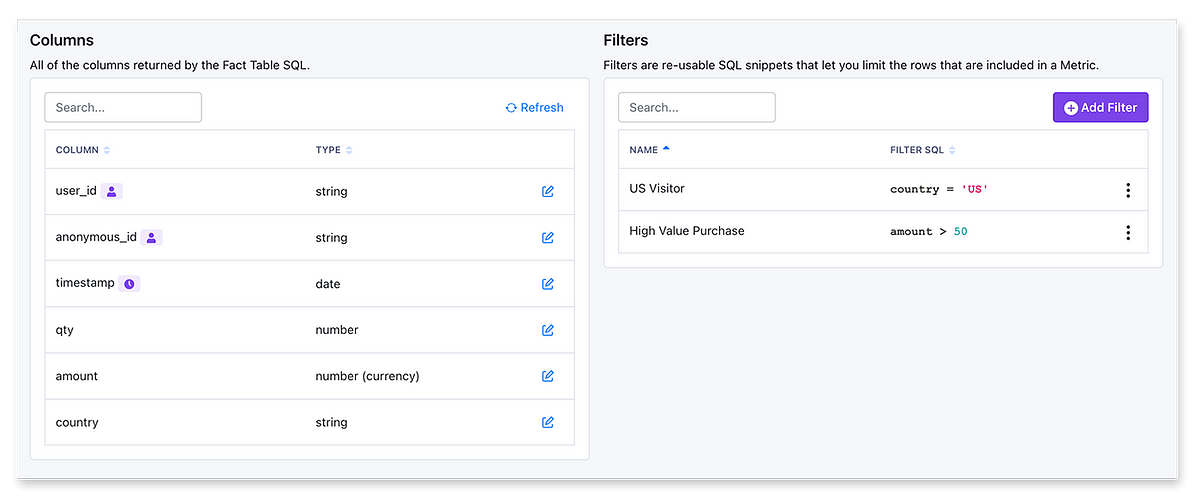
Fact Tables are a brand new way to create Metrics in GrowthBook. Every analytics event usually results in several very similar metrics. For example, when an order is placed, you may want to know how many people ordered, how much they spent, what percent of orders used a coupon code, and more. With Fact Tables, you define the SQL for getting order data once and can quickly create tons of metrics on top of this without writing any code.
We have a lot planned for Fact Tables in the near future, including some massive SQL performance/cost improvements and the ability to easily add dimension slices for metrics. Stay tuned!
SDK Remote Evaluation Mode
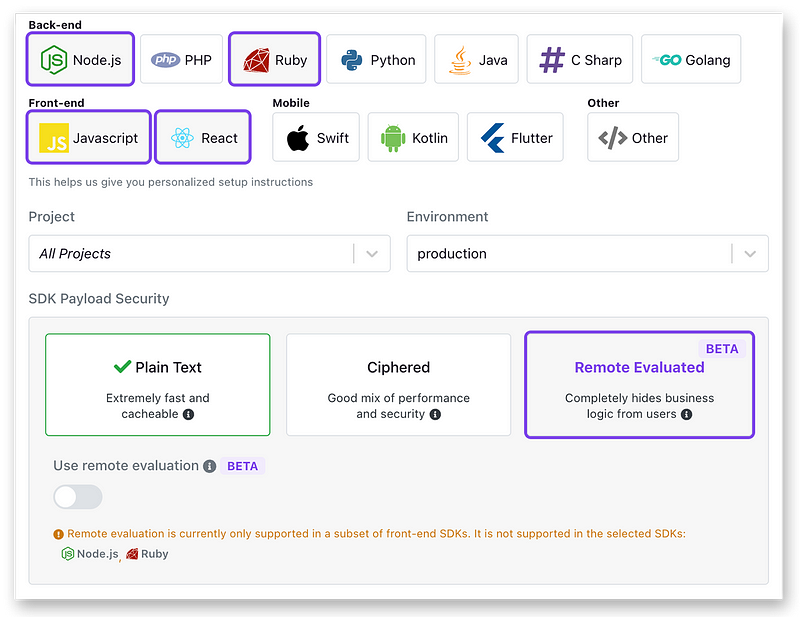
When we first built the client-side GrowthBook SDKs, we took a radically different approach from other feature flagging tools — all evaluations happened locally on a user’s device. This had huge performance benefits (extremely cacheable) and much better data privacy (no user PII sent to 3rd parties). There is a downside, though — your users can see all the business logic and experiments that you’re using to assign feature flag values.
With this release, we’re adding a new Remote Eval option to our JavaScript and React SDKs where feature evaluation happens on a back-end server and your users only see their own personalized result. The most exciting part is that we found a way to preserve many of the benefits of local evaluation! Evaluation happens entirely on your infrastructure, so you can still have amazing performance and privacy. We’ll be adding support to mobile SDKs soon and adding more deployment options.
SCIM Support for Okta

SCIM, or System for Cross-domain Identity Management, is an open standard that allows for the automation of user provisioning. Any of our Enterprise customers using Okta for SSO can now add and remove users from GrowthBook directly from within the Okta UI. Support for other identity providers is coming soon.
Data Pipeline Mode
We added a new option for BigQuery and Snowflake to enable Data Pipeline Mode. In this mode, GrowthBook will write some intermediate tables back to your data warehouse while analyzing experiment results. This can drastically reduce the query cost, especially for teams that run a lot of experiments, each one with tens or hundreds of metrics. We’re adding support for other data warehouses soon.
AI Copy Suggestions
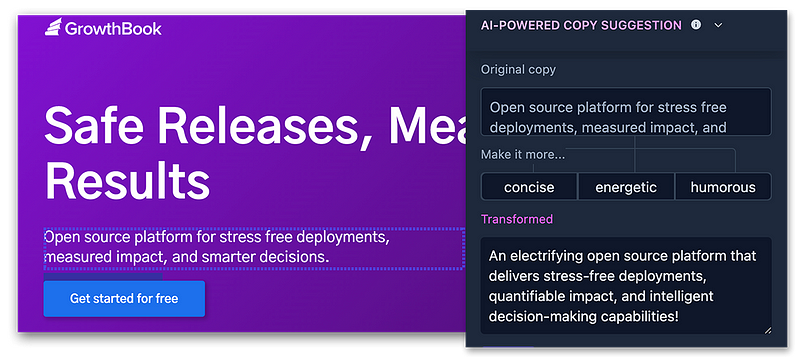
Enhance your written content using GPT-powered AI. Transform human-readable text into any desired emotion effortlessly. Our visual editor just got better with the inclusion of AI powered copy suggestions. Simply click on any text element, and then have the AI suggest alternative copy. Give it a try, you might be surprised with some of the improvements it suggests!
Simulations and User Archetypes
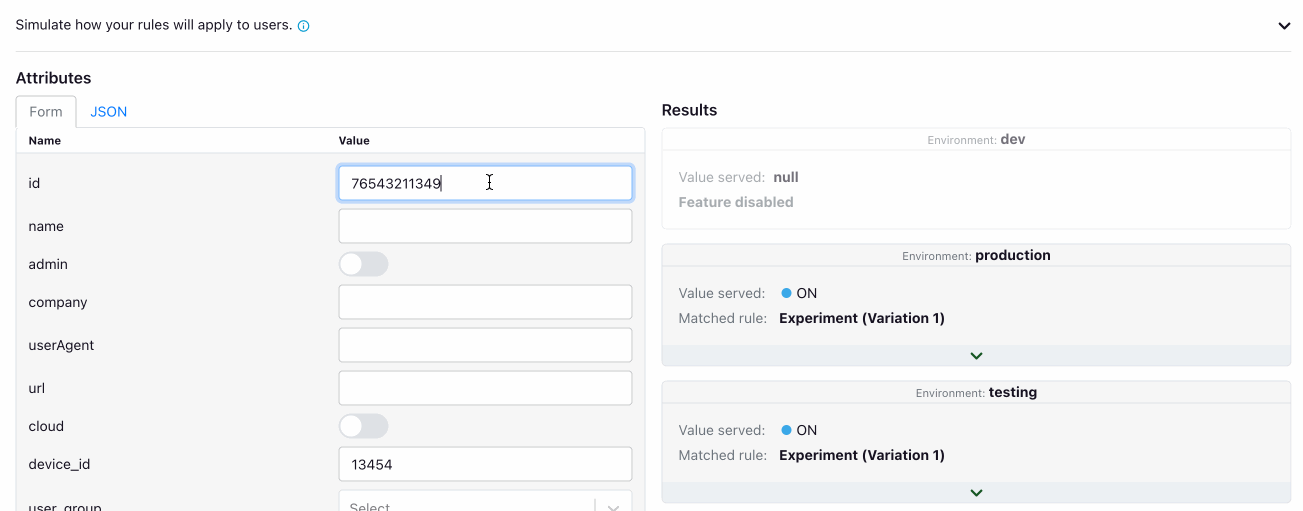
When setting up feature flag values, it is helpful to know that you’ve set up the rules correctly for the users you’re targeting. With Simulations, you can now easily see how rules will be applied to users by setting the attributes. We will also show debug information about why each rule is used or skipped. And, as many teams have specific sets of users they often target features too, you can now save sets of attributes as an ‘Archetype’ to quickly see what values they will get.

Feature flag rule testing is free for everyone, while Archetypes are available to our enterprise customers.
API Endpoints for Feature Flags
We’ve added REST endpoints that allow you to create, edit, and toggle feature flags via our API. We’re excited about all of the use cases this unlocks and can’t wait to see what the community builds! You can read more about these endpoints in our API docs: https://docs.growthbook.io/api#tag/features
Multi-organization Deployments
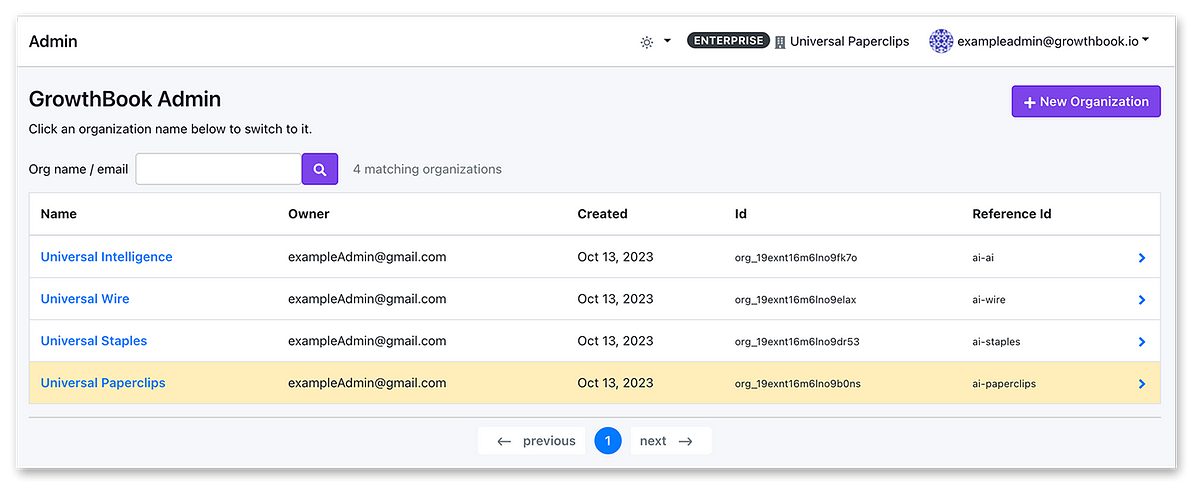
GrowthBook has Projects, which let you group together related feature flags and experiments. Companies often use this to give each team or product its own space. Some larger Enterprises need an additional layer to represent their complex business structure, which is why we now offer self-hosted Multi-Organization deployments. Organizations in GrowthBook share a common SSO identity provider, but are otherwise completely isolated from each other. Users in GrowthBook can belong to one or more organizations and can easily toggle between them in the top nav. Along with this change comes a dedicated Super Admin page and REST API endpoints to manage your deployment.
Other Changes
- Improved experiment velocity graphs, with the ability to segment by status, results, or projects.
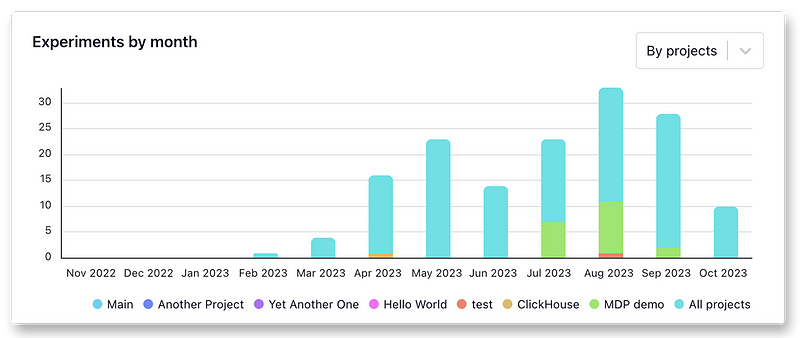
- Experiment search improvements
- Snowflake query tagging for easier cost accounting
- Stats engine selection for experiments
Plus, there are many more changes and bug fixes which you can read about here: https://github.com/growthbook/growthbook/releases






